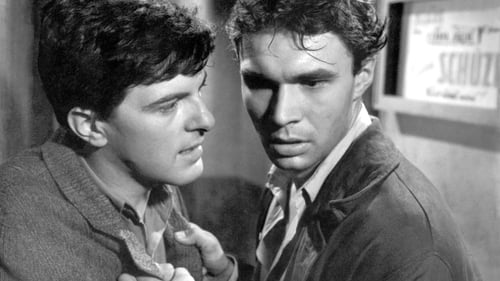Vladimír Ptáček
出生 : 1926-10-29, Lovčice u Čáslavi, Československo
死亡 : 1985-12-05
略歴
Herec Vladimír Ptáček byl rodákem ze středočeského venkova a profesionální pouť po českých divadlech zahájil hned po skončení války bez odborného vzdělání. Jeho první štací bylo Jihočeské divadlo v Českých Budějovicích, následovalo Beskydské divadlo v Hranicích na Moravě a Vesnické divadlo, které pořádalo zájezdová představení po celé republice. Na všech těchto scénách strávil Ptáček jen po jedné sezóně, načež působil v Městském divadle v Novém Boru a v Krajském oblastním divadle v Karlových Varech. Trvalé působiště nakonec našel v Pardubicích a na jevišti zdejšího Východočeského divadla hrál od roku 1955 až do svého předčasného úmrtí.
Celoživotní mimopražské angažmá do značné míry omezilo Ptáčkovy možnosti širšího uplatnění ve filmu, přesto jeho filmografie zahrnuje bezmála čtyřicet titulů a v šedesátých letech vystoupil hned v několika zásadních dílech československé kinematografie. Na filmovém plátně debutoval nevelkou postavou diverzanta v dramatu CESTA HLUBOKÝM LESEM (1963). V dnes již legendárním dramatu z konce války KOČÁR DO VÍDNĚ (1966) hrál partyzána, v páralovské adaptaci SOUKROMÁ VICHŘICE (1967) jsme jej mohli vidět v roli hostinského. Ve slavném filmu VŠICHNI DOBŘÍ RODÁCI (1968) se připomněl úlohou řezníka Rabona, nejdůležitější položkou v jeho práci před kamerou se pak stala postava Mlíkaře v Menzelově filmu SKŘIVÁNCI NA NITI (1969).
Kromě zmíněných snímků se jeho jméno objevuje i v titulcích dalších filmů různých žánrů, dnes již méně známých. V dekádě sedmdesátých let byl ke spolupráci pravidelně zván tvůrci dětských filmů a hrál například v dodnes populárních titulech jako DÍVKA NA KOŠTĚTI (1971) nebo PÁNI KLUCI (1975), menší role odehrál také v několika kriminálkách. Jeho poslední filmovou rolí byla postava mlynáře Budila v dnes již zapomenutém povídkovém filmu PLACHÉ PŘÍBĚHY (1982).
Vladimír Ptáček zemřel 5. prosince 1985 ve věku 59 let.

An allegory set in an archetypal Czech village, it tells of what happens when a sequence of mysterious events take place, including the disappearance of the stationmaster. While everything has a rational explanation, collective paranoia takes hold and everyone’s worst instincts are released. Interrogations, the abolition of rights and the search for scapegoats ultimately lead to murder

Mlíkar
In post-WWII Communist Czechoslovakia, several characters considered bourgeois are sentenced to work in a junkyard for rehabilitation. Among them is a young man who pines for a female convict.

Sunday in September 1977, a celebration of the Miners Day. The old Hepnar is sitting at the cemetery and is recalling events from ten years ago. That time the representative of the ministry Barvír announced at the miners meeting that mining in the mines would decrease. He reasoned this decision by the fact the deposits of coal are almost used up. The boss of the mine and most of the miners protested. Barvír did not take their critical objections into account. He announced at the communist district meeting the closure of the business as the mine according to new economic principles did not prosper.

(segment "Zimní vítr 1951")
Three short stories ("Zelenáči 1945", "Silvestr 1948" and "Zimní vítr 1951") about members of the SNB units guarding the Šumava border in the post-war years. Ivo Toman had artistic supervision over the debutants. The theme of the third short story was made in 1959 for the film "Entry Forbidden" by František Vláčil, who was also starting at the time.

Svatebcan
A group of children are investigating a chain of mysterious events during the seventies.

Peasant
Three friends - Tomás, Hubert and Jozka - are boys growing up in a little town. Tomás lives with his aunt Apolena and uncle Václav. Tomás is a boy with lots of ideas that often end up getting him into trouble not only with his teachers and aunt, but with the other inhabitants of the town as well. He has a crush on his schoolmate Blanka and for her sake he decides to try to get the prize for the best pupil in the school.

Maj. Havlasa
An only son, Jirí Valenta (Jaromír Hanzlík), has been drafted to the army. At the barracks he acquires the nickname Seamstress because he sews rugs in his spare time. One day, his friend introduces him to Julka Vávrová (Jorga Kotrbová), a girl he is desperate to get rid of. The naive Jirí falls in love with the girl and accepts her invitation to spend Easter together in the country. There he learns that the girl is the single mother of the young boy Martínek, whose father is the married tractor driver.


There are still water spirits among us. One group lives in Prague, led by Mr. Wassermann, who is using his wife's family as a servants. All they need is their old house near the river. But the house is to be demolished. They have to stop it. And the only way is to drown Dr. Mrácek, who is responsible for the demolition. But he falls in love with Wassermann's niece Jana. He changes to fish, is mistaken for water spirit from Germany, is drowned and revived again. The other problem is the flour with ears... and so on...
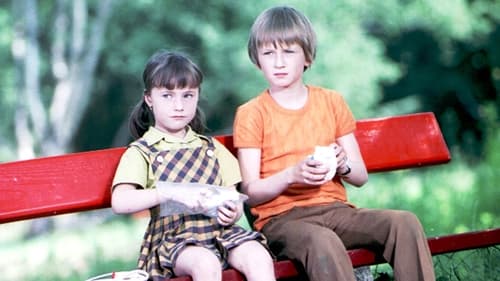
On the holidays, ten years old Adam and his little sister Otka, four years junior to him, travel from a village Vykán to their aunt to Prague. Their parents left for Hungary to the world championship in ploughing. The children have the address but they do not know the way to the Northern Town. They set out for a place on foot, across the historical parts of the town.

Film by Toman and Gajer.
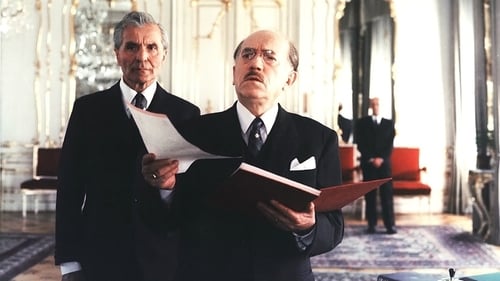
This feature film based on the events of 1938 is a chronicle of the futile efforts of the Czechoslovak president Edvard Benes (Jirí Pleskot), politicians and ordinary citizens, to save the independence and the territorial integrity of the state from the advance of Hitler's Germany. On the 29th of March 1938 the leader of the Sudeten Germans Henlein (Werner Ehrlicher) has a meeting with Hitler (Gunnar Möller). Hitler orders him to intensify pressure on the Czechoslovak government. On the 24th of April in Carlsbad, the Sudetendeutsche Partei (Sudeten German Party) decides upon eight demands that are unacceptable to the Czechoslovak President, since they would ultimately lead to the break-up of the Republic. Benes still shows a certain willingness to negotiate, and Henlein resents this. The Germans are determined to make further negotiations impossible through incidents and violence.


taxikář
A teenage witch, Saxana (Petra Černocká), frozen in time as a punishment for 300 years, finds herself in a modern world.

Jan Zika is the legendary hero of the communist resistance movement during World War II and leading functionary of the second underground Central Committee of the Communist Party of Czechoslovakia.
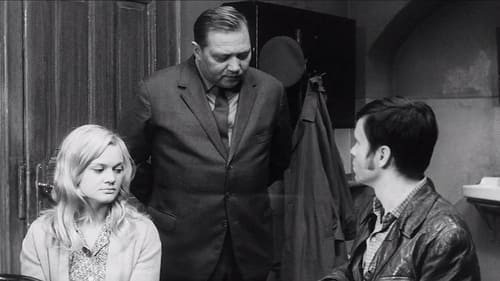
poručík VB Vlach
Major Kalas from the Prague criminal intelligence service has been sent to a small town of Dubá in North Bohemia to help with the investigation of the puzzling death of a child. A gypsy boy has been killed three weeks ago and his body found under a rock. As the investigation continues, another dead boy is found. The boy has bled to death after someone cut his artery with a handsaw. Both deaths are obviously the work of a murderer - a perverted pedophile, sadist who gets sexual satisfaction from the sight of a young boy's blood.
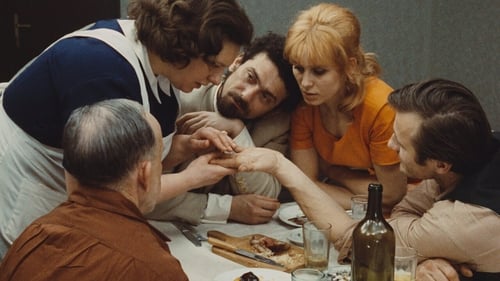
The title "All My Good Countrymen" is not without irony as this epic tale of Czech village life from shortly after the end of the Second World War concentrates on the activities of a group of friends who are not beyond reproach in siding with a politically corrupt regime for material advancement. Are these the "good countrymen" of the title or does it refer to the rest of the village who scorn these petty authority figure with silent contempt?

A worker steals bits and pieces of building materials from work to construct a new home for himself and his girlfriend. When he discovers that she’s having an affair with his boss, he devises one elaborate plot after another to murder the rival, each time with pathetic results.

Guerilla
A WW2 story of a young Austrian soldier running from the Russian army and a woman whom he forces to come along in order to save his wounded mate.

This three-part Austrian/Czech comedy stretches the boundaries of what is considered to be humorous. Part one finds a silent film actor upset because of a rival actor's attention to the former's wife. When he kills his rival, it is only when he is strapped to the electric chair that he realizes that this is his last live scene. The second episode has the wife of an elderly British nobleman having an affair with the young gamekeeper of their estate. Part three finds a peasant woman taking a lover when her husband goes off to fight the war.


Investigator
A dramatic story from the setting of a youth de tention center. Youngster Jakub, out of delusory solidarity, gets convicted of theft and goes to prison in place ofthe "sheriff" of his gang. He naively hopes that the sheriff will appreciate his gesture and leaves the stolen goods in a safe hideaway to later divide them fairly among the gang members. This conviction gives Jakub the strength to endure the unbearable conditions in the center. But reality is often much harsher than naive ideals and hollow relations in the gang.

Managers at the construction of a big hydro plant are accused of having embezzled money.








